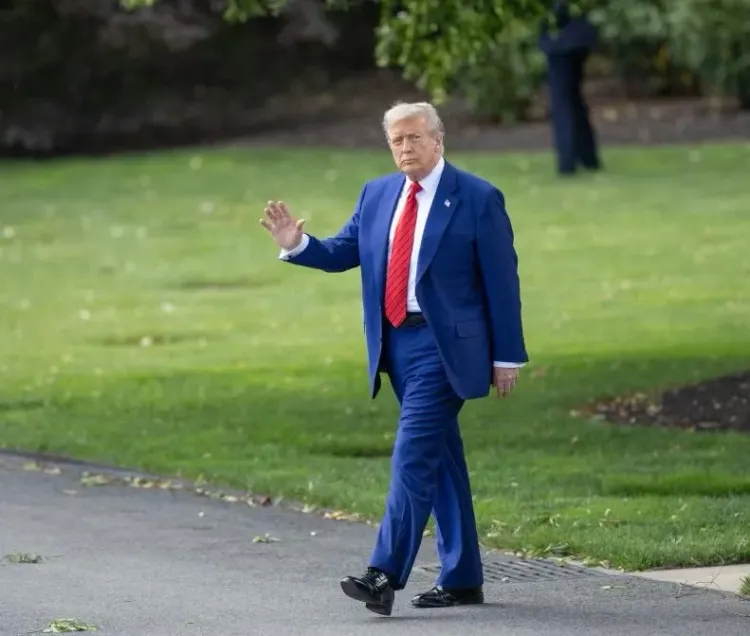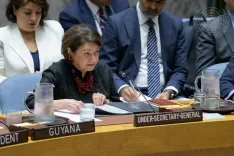Is it Challenging for Trump to Urge Israel to Halt Strikes on Iran?

Synopsis
Key Takeaways
- Trump's remarks highlight the complexities of US-Israel relations.
- The IDF has successfully targeted Iranian missile facilities.
- Diplomatic efforts from Europe are seen as ineffective by the Trump administration.
- Military actions in the region may escalate tensions further.
- The future of US-Iran nuclear discussions remains uncertain.
New York, June 21 (NationPress) US President Donald Trump stated that it would be quite challenging to ask Israel to cease its airstrikes on Iran, even as he seeks a diplomatic resolution to the ongoing conflict.
Trump shared these thoughts with reporters in New Jersey, where he attended a fundraising event at his golf course, as reported by Xinhua News Agency citing local media.
He also downplayed European attempts to engage Iran diplomatically, saying, "They didn't help... Iran doesn't want to talk to Europe. They want to talk to us. Europe is not going to be effective in this situation."
Earlier, US State Department spokesperson Tammy Bruce mentioned she could not speculate on the possibility of the Trump administration advocating for a ceasefire between Iran and Israel to facilitate US-Iran nuclear discussions.
"I'm not going to characterize what is occurring now or how the president or the secretary of state might react to those negotiations," Bruce stated during a news briefing on Friday.
In the meantime, the Israel Defence Force (IDF) has reported the destruction of over 35 missile storage and launch facilities in the Tiberias and Kermanshah regions of Iran after attacks carried out by more than 25 Israeli Air Force fighter jets on Friday morning.
"This morning, the Air Force completed a series of strikes against military targets of the Iranian regime in areas like Kermanshah and Tiberias in Iran, with precise intelligence guidance from the Intelligence Branch. As part of these operations, over 25 fighter jets targeted more than 35 missile storage and launch facilities in the Tiberias and Kermanshah areas of Iran," the IDF stated in a post on X.
The IDF also indicated that the Israeli Air Force targeted several Iranian missile systems and radar installations in the areas of Isfahan and Tehran, aimed at disrupting their operations and targeting the aircraft.









